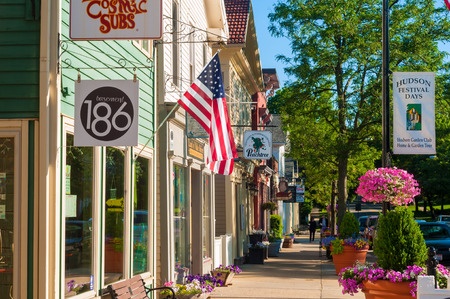Is The Small Business Administration An Ally to Alternative Lenders?
 Add the Small Business Administration (SBA) to the list of organizations likely to understand the rise of tech-based business lending. Miriam Segal, a research economist for the SBA, recently published a report titled, Peer-to-Peer Lending: A Financing Alternative for Small Businesses. In it, she opens with a line that is all too familiar in the merchant cash advance and non-bank lending industry. “Imagine that you own a small bakery and you need $15,000 to buy a new oven,” she writes. She later adds, “Data suggest that peer-to-peer lending may be a viable financing alternative for small businesses, particularly given the post-recession credit market.”
Add the Small Business Administration (SBA) to the list of organizations likely to understand the rise of tech-based business lending. Miriam Segal, a research economist for the SBA, recently published a report titled, Peer-to-Peer Lending: A Financing Alternative for Small Businesses. In it, she opens with a line that is all too familiar in the merchant cash advance and non-bank lending industry. “Imagine that you own a small bakery and you need $15,000 to buy a new oven,” she writes. She later adds, “Data suggest that peer-to-peer lending may be a viable financing alternative for small businesses, particularly given the post-recession credit market.”
After having read the recent Federal Reserve study that essentially concluded that small business owners are just too confused to make sound financial decisions, the SBA report is a welcome sign that there is little to fear from “alternative lending.”
While the SBA is sometimes cast as a villain to the private sector, what with their ability to assuage banks into making small business loans at very low interest rates with the assurance of default guarantees, a practice viewed by some economic ideologues as anti-free market, there hasn’t actually been much competition with alternative lenders. The average SBA loan is about $371,000, much higher than the average merchant cash advance transaction of about $30,000. And although they are a government agency, the SBA is scrutinized far more than today’s alternative lenders are. Politicians have sought to shut the agency down for decades but it has managed to survive. If any small business lending group knows what it’s like to be a political football, it’s the SBA. They’ve even been accused of similar antics, like being a participant to predatory lending.
Chris Hurn, Fountainhead Commercial Capital’s CEO, offered his opinion on such in the Huffington Post when he wrote, “I realize that calling some behaviors ‘predatory’ will raise some hackles, but what else would you call a virtually systemic practice of convincing small business owners to accept an inferior loan program on commercial real estate transactions, which almost certainly puts these borrowers in future harm’s way, only so a bank can maximize its income?”
Where have we heard this viewpoint before?
In the SBA report, Segal acknowledges a wide array of working capital options including merchant cash advance products. “P2P lending may fill a gap in small business lending for entrepreneurs seeking small amounts of capital when existing options are not suitable or available (e.g., bank loans, credit cards, and merchant cash advances),” she states.
She also gets to the heart of the issue that those touting the superiority of long term loans seem to be missing and that is that, “the majority of small business borrowers appear to be interested in relatively short-term loans in relatively small amounts.” Using data made available by Lending Club, 56% of small business owners applied for loans of $15,000 or less. Although the SBA will guarantee really small loans, it’s uncommon for banks to spend time and effort underwriting these, not to mention that many small businesses lack collateral and other minimum requirements for eligibility.
The reality is that alternative lending is for the most part the world outside of the SBA’s scope. “For some small businesses, an expensive loan may be better than no loan,” Segal concludes.
Given the variations in application process, interest rate, loan amount, and term length across loan products, it is apparent that each option presents a unique set of pros and cons. Peer-to-peer loans offer the benefits of expedited application processing, smaller loan amounts, and shorter terms, but borrowers pay for these conveniences in the form of higher interest rates.
– Miriam Segal
Research Economist, SBA
From the perspective of small business advocacy, the report gets it right. “Peer-to-peer lending to small businesses is rising while the origination of small business bank loans is decreasing. Micro businesses are interested in borrowing small amounts of money, although their credit applications are the most likely to be rejected. Therefore, the financial regulatory environment in which P2P lending exists is particularly important to small businesses.”
And it concludes, “Peer-to-peer lending has the potential to change the landscape of small business financing for the better. In order for this to happen, financial regulations must reflect the need for investor protection and simultaneously allow small businesses to access the capital that many individuals are willing to provide—no small task.”
As the wider industry is being researched by regulators, it is an especially important time to discover who shares the same understanding of the facts. Although not an immediately obvious choice of ally, the SBA is undoubtedly qualified to communicate the needs of small business. That makes them an especially good candidate to help explain the story about the what, why, and how of the changing landscape.
Last modified: September 16, 2015Sean Murray is the President and Chief Editor of deBanked and the founder of the Broker Fair Conference. Connect with me on LinkedIn or follow me on twitter. You can view all future deBanked events here.































